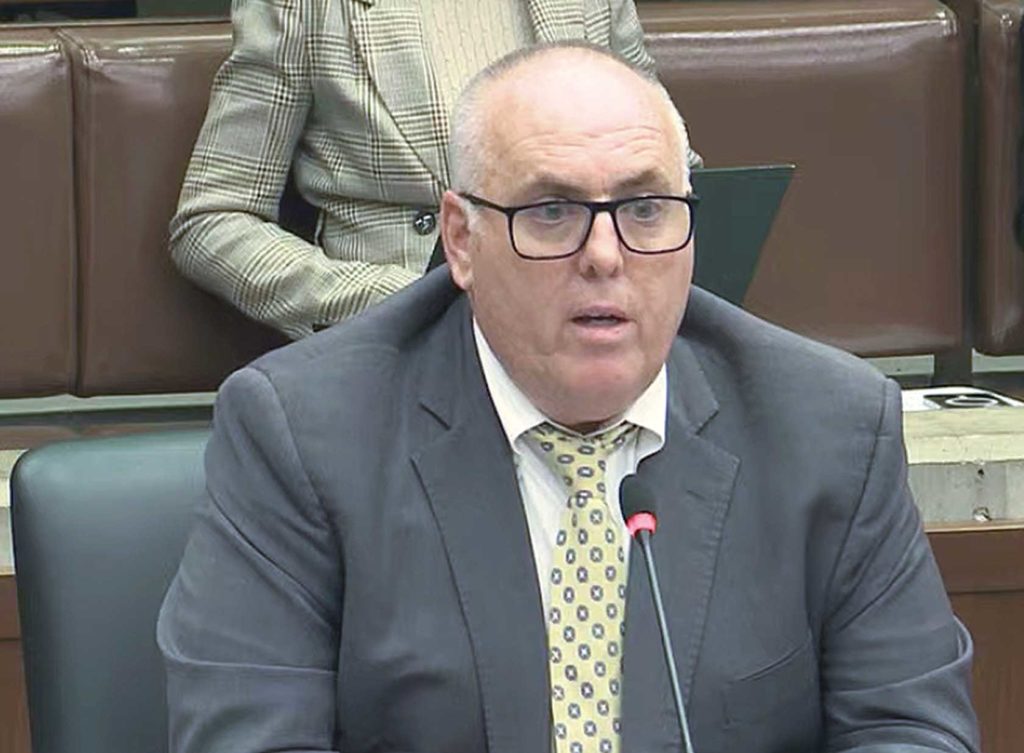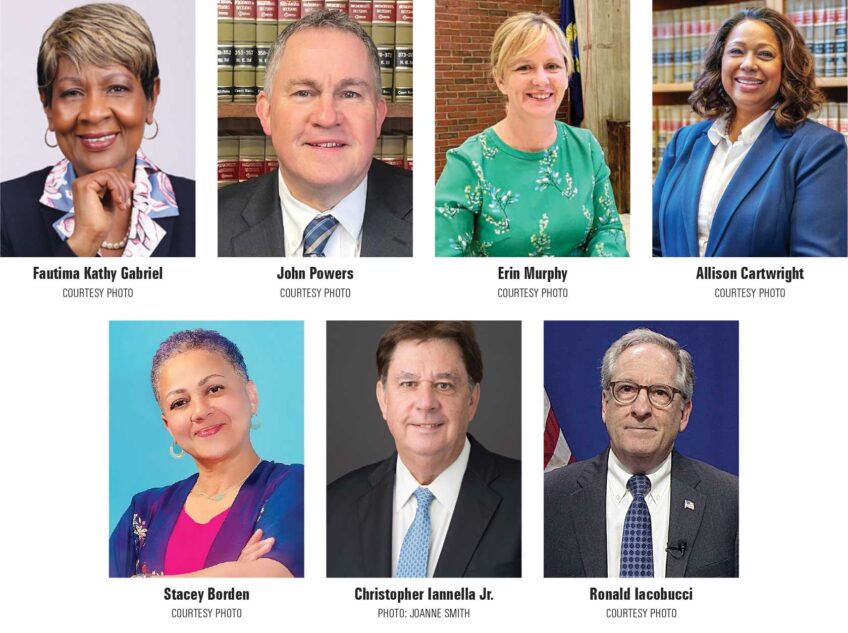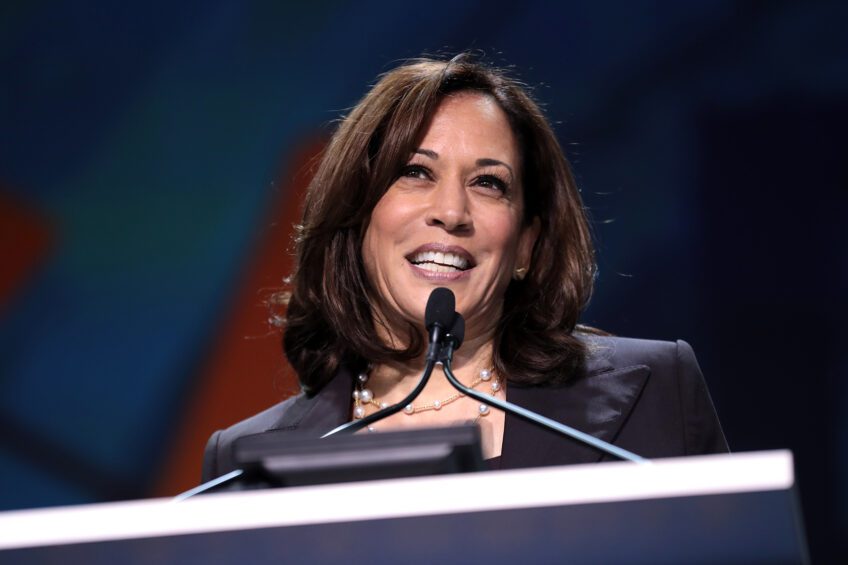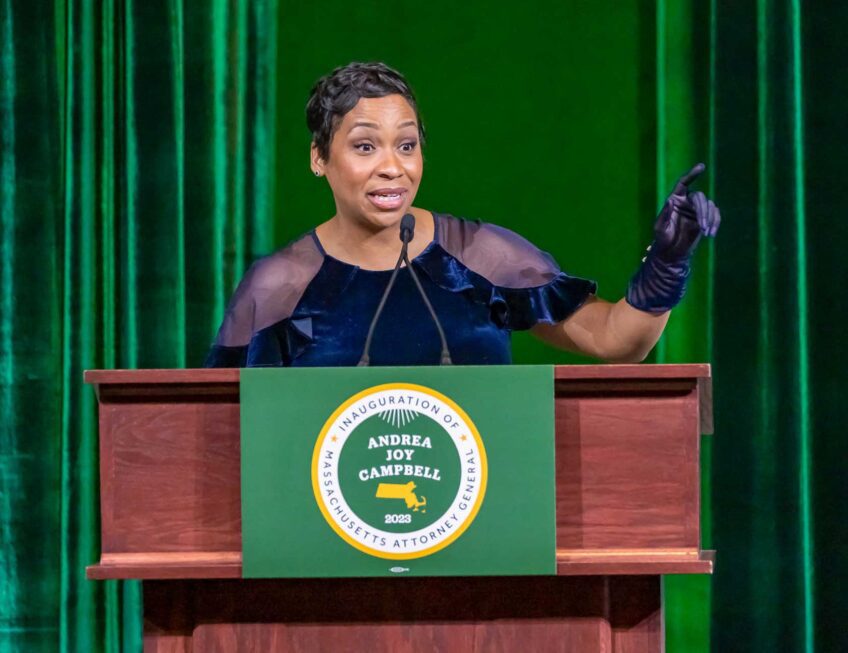White grievance politics surfaces on City Council
Friction between Irish American councilors, colleagues boils over

Faced with a redistricting map that would transfer three traditionally Irish American Boston precincts into a predominantly Black city council district, Councilor Frank Baker invoked the oppression of Catholics in the North of Ireland and called out the Redistricting Committee chair for being a Protestant.
Baker’s outburst captivated headlines, almost overshadowing the council’s 9-4 vote in favor of a map backed by councilors of color and opposed by the four Irish American members.
Faced with losing several precincts that had long been in his South Boston district to Baker’s Dorchester-based district, Council President Ed Flynn lambasted his colleagues, calling the splitting of his neighborhood into two districts unconscionable, even though his district is one of three into which the South End neighborhood is currently split. Despite populations of Black, Chinese Americans, Latinos and progressive whites, Flynn’s district has always been represented on the council by white men from South Boston.
Each of the council’s four Irish American councilors opposed the map with varying objections. “It divides the Boston Housing Authority development[s] of South Boston and unnecessarily rips apart the neighborhoods of Neponset, Adams Corner and Port Norfolk, to name a few,” Murphy wrote in a letter posted on Twitter Nov. 1.
The councilors and their supporters appear engaged in white grievance politics, a phenomenon that, while relatively rare in Boston, has surfaced in much of white America.
“This is white political fragility in Boston,” said former state Rep. Byron Rushing. “They just don’t have the numbers on their side. They don’t have time on their side, because the white people who are moving into Boston don’t like them.”
White grievance politics is rooted in the notion that as Blacks, Latinos, Jews and other ethnic groups are gaining stature in the United States, whites are, as a consequence, losing power and status. The current wave of white grievance politics began to take form when Barack Obama won the 2008 Democratic nomination for president over Hillary Clinton.
Interestingly, one of the first groups founded to contest Obama’s primary win, People United Means Action (PUMA), was founded by Darragh Murphy, Councilor Erin Murphy’s sister. That organization sought to organize a class action lawsuit to force Obama to make public his birth certificate, helping to usher in the so-called birther movement that helped propel Donald Trump to prominence within the Republican party.
Obama’s rise to the presidency did not signal the end of white political power. Whites still dominate Congress, the Senate and state legislatures and governor’s offices across the country. Whites still have higher incomes, higher rates of home ownership and more wealth than do Blacks and Latinos. Nevertheless, Trump and his supporters seem to thrive off the perception that whites are losing power.
The white victimhood Baker sought to tap into at the contentious council hearing has its roots in a real, longstanding grievance that began when the Tudor dynasty in England conquered Ireland in the 16th century, ushering in more than 400 years of colonization that has the Catholic population in the north still facing discrimination.
The Irish in Boston for decades faced discrimination from Protestants after they began to arrive here in large numbers during the 1840s. But they came to dominate politics in the city for more than 100 years. During that time, the Boston Irish gained a reputation for discrimination against the city’s Black population, particularly during court-ordered school desegregation. During the 1960s and ’70s each of the largest city departments — the Boston Housing Authority, the schools, the police and fire departments — were placed under some form of court-ordered desegregation.
When Bernadette Devlin McAliskey, an Irish civil rights leader who represented Mid Ulster in Parliament and witnessed the 1972 Bloody Sunday massacre, visited Boston in 1979, she told an interviewer Irish Americans’ hesitancy to side with Catholics in the north of Ireland mirrored their prejudice against Blacks here.
“There is nothing sadder to people struggling against oppression in Ireland to look toward Boston city and see our people … being used to oppress the Black people of this city,” she said.
For most of the 40 years of Boston’s nine-district, four-at-large-seat city council, Irish Americans held between seven and 10 seats. But since 2020, the council has become more heterogenous than ever, with a progressive majority of Black, Puerto Rican, Dominican, Haitian and Cape Verdean members as well as three white progressives, including Breadon.
The Irish Americans on the council have seen their numbers dwindle as rising rents and housing costs have decimated the white-working-class vote in South Boston and Dorchester.
This year’s redistricting process marks the first time Irish Americans have had to negotiate their district boundaries as just one of the city’s many constituencies rather than its majority. Baker, Flaherty and Murphy advanced maps that would have left the predominantly white Dorchester precincts in District 3 and kept South Boston in District 2, but none of the maps gained traction with the councilors of color or the three white progressives.
With the exception of Baker, the Irish American councilors were mostly civil in their opposition to the maps proposed by councilors of color. Their constituents were a bit less measured. Ann Walsh, Erin Murphy’s mother, said in an email to the council that a map moving her predominantly white precincts into Worrell’s District 4 “simply and deliberately decimates the Cedar Grove Neighborhood.”
During a redistricting hearing in South Boston, at-large Councilor Julia Mejia was shouted down for translating her remarks into Spanish, a primary language for many who live in public housing there.
While they emerged victorious, backers of the unity map say they found the council’s process unsettling.
“I’m pleased that this redistricting process has yielded a map that meets the objectives of the Voting Rights Act,” said NAACP Boston Branch President Tanisha Sullivan. “That said, I am very disheartened by what the process revealed about the racial, cultural and religious divides we have worked so hard to put behind us. We will continue to work toward a more inclusive Boston.”







